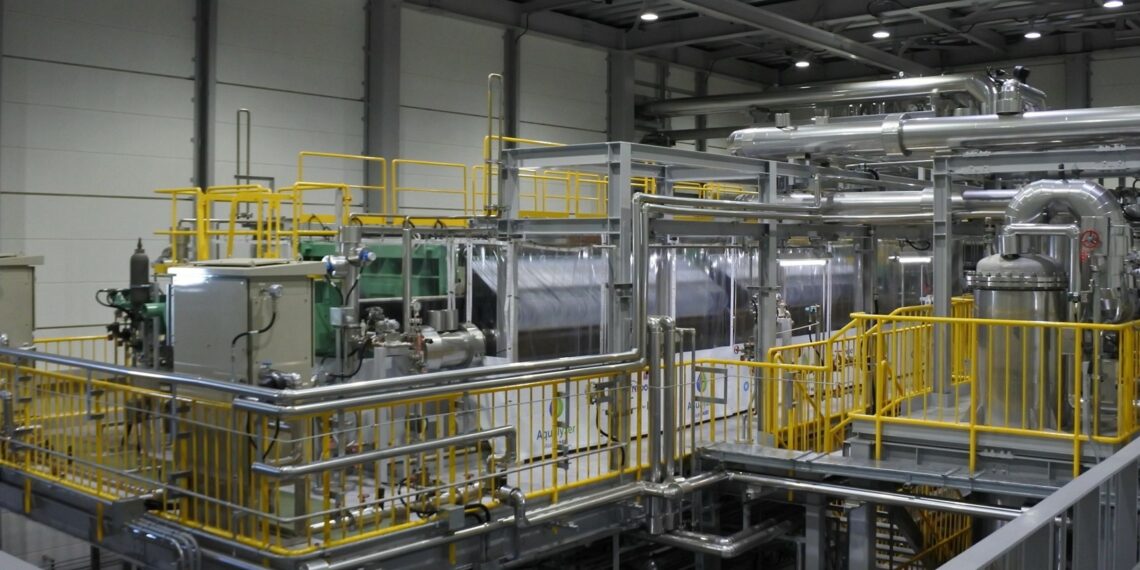Asahi Kasei announced that it has joined the Hydrogen Council as a steering member. The Hydrogen Council is a global initiative to advance the role of hydrogen in the clean energy transition for sustainability. Founded in January 2017, the Hydrogen Council now includes close to 150 companies and organizations across the entire hydrogen value chain.
Hydrogen-related business is one of Asahi Kasei’s “10 Growth Gears” (GG10), businesses to lead the next phase of growth in fields of focus as part of its medium-term management plan 2024 focused on the theme “Be a Trailblazer.” Asahi Kasei is currently advancing its hydrogen-related business centered on the alkaline water electrolysis system for hydrogen production developed utilizing its experience and expertise gained with the membrane process for chlor-alkali electrolysis.
Asahi Kasei installed a large 10 MW-scale alkaline water electrolysis system at the Fukushima Hydrogen Energy Research Field (FH2R) as part of a project led by Japan’s New Energy and Industrial Technology Development Organization (NEDO) and performed several trial operations since 2020.
Based on the technological achievements obtained at FH2R, Asahi Kasei plans to commercialize a larger-scale alkaline water electrolysis system comprising multiple 10 MW modules by 2025.
Koshiro Kudo, CEO of Asahi Kasei, commented, “The promotion of hydrogen utilization on a large scale is essential to realize a decarbonized society. Through participation in the Hydrogen Council initiative, we believe we can contribute to building a hydrogen value chain together with partners and achieve the decarbonization goal.”
As a steering member of the Hydrogen Council, Asahi Kasei will contribute to the promotion of hydrogen utilization by working with various companies and organizations in the supply chain, while building a new business for the future.

















